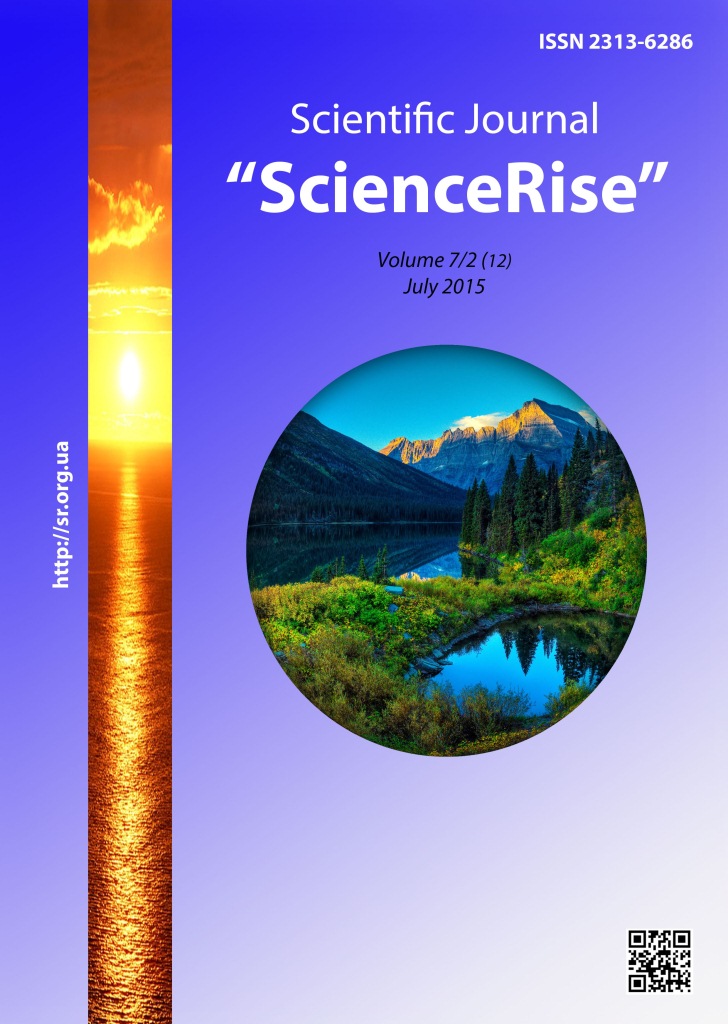Интенсификация тепломассообменных процессов в аппаратах погружного горения колебаниями контактирующих фаз
DOI:
https://doi.org/10.15587/2313-8416.2015.46987Słowa kluczowe:
аппарат погружного горения, тепломассообменные процессы, колебания, барботажный режимAbstrakt
Исследован вопрос создания колебаний в контактирующих фазах (газ – жидкость) как средства интенсификации тепломассообменных процессов при барботажном режиме в аппаратах погружного горения (АПГ). Определены кинематические и силовые характеристики в волновом поле. Предложено размещать резонирующие барботажные устройства в зоне выхода продуктов сгорания из АПГ и входа их в жидкость. Исследования на лабораторных и действующих технологических установках подтвердили перспективность выбранного направления
Bibliografia
Kardashov, G. A. (1973). Heat-exchange acoustic process and apparatuses. Moscow, USSR: Mechanical Engineering, 223.
Sokolov, V. N., Domansky, I.V. (1973). Gas-liquid reactors. Leningrad, USSR: Mechanical Engineering, 216.
(2008). Universal heater of technological liquids UHTL-101.01. ТУ У 29.7-02070758-001:2008. Technical description. Dnepropetrovsk, Ukraine.
Isakovich, M. A. (1979). The general acoustics. Moscow, USSR: Science, 389.
(1963). Vocabulaire electrotechnique international. Gr.35: Electromechanical devices and their application. Moscow, USSR: Physmathgis, 69.
(1979). Ultrasound. Concise Encyclopaedia. Moscow, USSR: Soviet Encyclopaedia, 400.
Pein, G. (1979). Physics of oscillation and waves. Moscow, USSR: Mir, 389.
Bergman, L. (1975). Ultrasound and its application in science and technique. Moscow, USSR: Foreign Literature, 659.
Minnaert, M. (1933). On musical air bubbles and the sounds of minning water. Phil. Mag. 16 (7), 235.
Smith, F. D. (1935). On the destructive mechanical effects of the Gas bubbles liberated by the passage of intense sound through a liquid. Phil. Mag. 19 (7), 1137.
##submission.downloads##
Opublikowane
Numer
Dział
Licencja
Copyright (c) 2015 Валерий Евгеньевич Никольский

Utwór dostępny jest na licencji Creative Commons Uznanie autorstwa 4.0 Międzynarodowe.
Our journal abides by the Creative Commons CC BY copyright rights and permissions for open access journals.
Authors, who are published in this journal, agree to the following conditions:
1. The authors reserve the right to authorship of the work and pass the first publication right of this work to the journal under the terms of a Creative Commons CC BY, which allows others to freely distribute the published research with the obligatory reference to the authors of the original work and the first publication of the work in this journal.
2. The authors have the right to conclude separate supplement agreements that relate to non-exclusive work distribution in the form in which it has been published by the journal (for example, to upload the work to the online storage of the journal or publish it as part of a monograph), provided that the reference to the first publication of the work in this journal is included.

